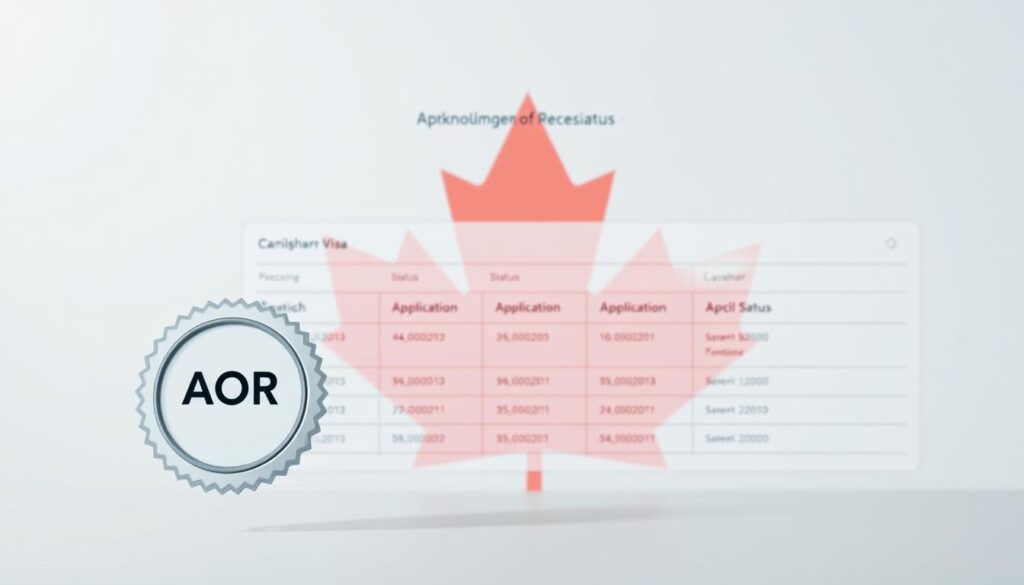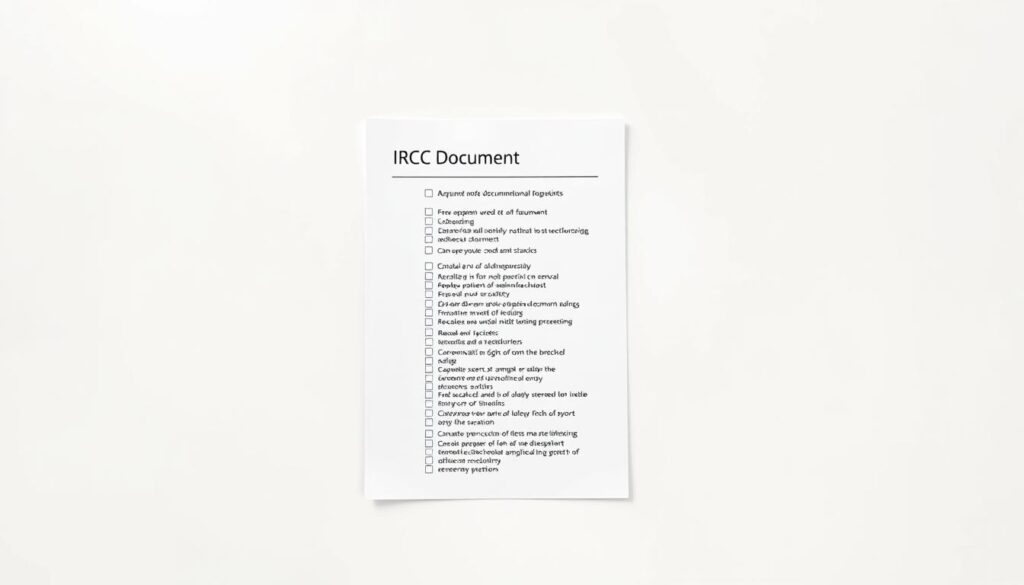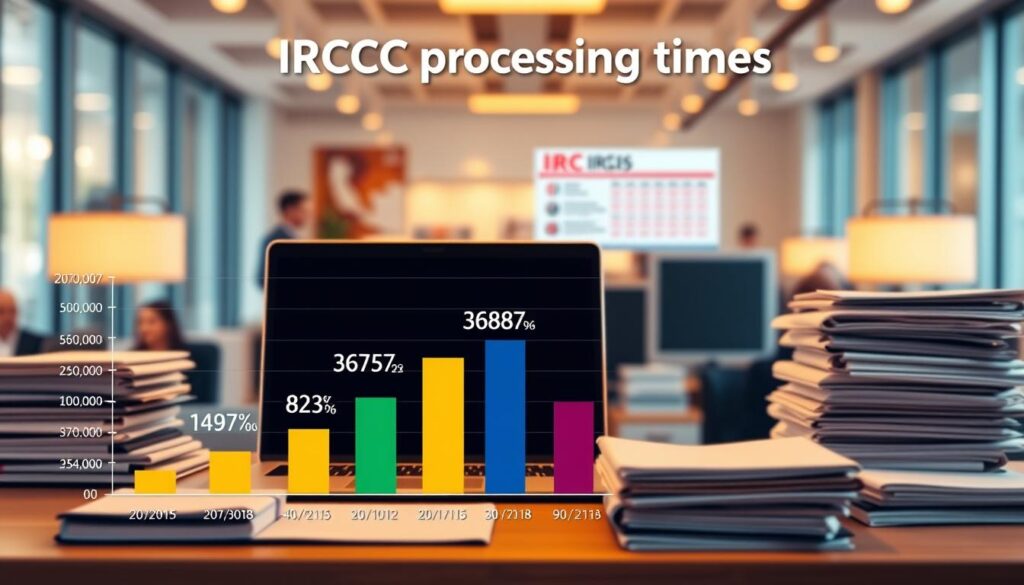Every year, over 400,000 applicants receive their first official confirmation from Immigration, Refugees and Citizenship Canada (IRCC). This document, known as the Acknowledgment of Receipt (AOR), marks the start of your journey toward permanent residency, citizenship, or Express Entry approval.
The Canada visa portal plays a crucial role in tracking your progress. Once IRCC accepts your submission, the AOR serves as proof that your application is in the system. Without it, you won’t have access to updates or processing timelines.
This guide explains how the AOR works, why it matters, and how to navigate the immigration process smoothly. Whether you’re applying for permanent residency or citizenship, understanding this step ensures you stay informed.
Key applications covered include Express Entry, family sponsorship, and study permits. Let’s simplify the AOR process so you can move forward with confidence.
What Is AOR Canada? A Key Step in Your Immigration Journey
Your journey begins officially when IRCC acknowledges your submission. This confirmation, called the Acknowledgment of Receipt (AOR), is your gateway to tracking progress and ensuring documents stay valid.

Definition of AOR in Canadian Immigration
The AOR is a formal notice from IRCC confirming they’ve received your application. It includes a unique identifier to check your application status online. Without it, you can’t proceed to steps like biometrics or medical exams.
Why the AOR Matters for Your Application
This document starts the processing clock and prevents expiry issues with submitted files. It’s also proof for future communications with IRCC, especially for citizenship canada applicants.
- Access IRCC’s portal for real-time updates.
- Documents remain valid during review.
- Required for scheduling next steps.
Types of Canadian Immigration Applications That Receive an AOR
Not all applications trigger an AOR—only specific immigration categories qualify. The Acknowledgment of Receipt confirms IRCC has begun processing your submission. Below are the key pathways that generate this critical document.

Express Entry Applications
Express Entry candidates receive an AOR after submitting their profile. This validates their eligibility for programs like the Federal Skilled Worker Program. Timelines vary, but most get a receipt within 2–8 weeks.
Permanent Residence Applications
Family-class or economic-class PR submissions always generate an AOR. It starts the clock for processing times, which average 12 months for spousal sponsorships.
Spousal Sponsorship Applications
Sponsors must include all required *documents* to avoid delays. Once approved, the AOR allows access to IRCC processing times for tracking.
Study and Work Permit Applications
Though not all permits trigger an AOR, most from eligible countries do. This receipt confirms your submission is complete and under review.
Canadian Citizenship Applications
After filing for citizenship, the AOR validates your language tests and physical presence proofs. It also unlocks test-prep resources while IRCC reviews your file.
How to Obtain an AOR for Your Canadian Visa Application
Getting your AOR is the first milestone in your immigration process. This receipt confirms IRCC has your submission and starts the review period. Here’s how to secure it smoothly.
Submitting Your Application: Online vs. Paper-Based
Choose between digital or physical submission based on your visa type. Online applications typically process faster, while paper submissions suit certain sponsorship programs.
| Method | Processing Times | Notification |
|---|---|---|
| Online | 4–6 weeks | |
| Paper | 6–8 weeks | Postal mail |
“Always double-check document requirements before submitting. Missing files delay your AOR by weeks.”
What to Expect After Submission
IRCC first verifies your application is complete. If approved, you’ll receive the AOR via email or mail, depending on your submission method.
- Completeness check: Ensures all forms and fees are included.
- Notification: Digital applicants get emails; paper filers receive letters.
- Follow-up: Use IRCC’s webform if no AOR arrives within 12 weeks.
Track your application status online once IRCC received your submission. Delays often stem from missing documents or high volumes.
Does an AOR Mean Your Application Is Complete?
Receiving your AOR doesn’t guarantee approval—it simply confirms IRCC has your submission. The agency first verifies if your file meets basic requirements before full processing begins. This initial screening, called a completeness check, ensures no critical pieces are missing.

Understanding the Completeness Check
IRCC reviews your submission for obvious errors or omissions. Common issues include unsigned forms or outdated financial statements. If flagged, you’ll receive a request for additional documents, delaying your timeline.
Common Reasons for Additional Document Requests
Even with an AOR, your application might need corrections. Top triggers include:
- Missing signatures: IMM forms require wet ink or digital signatures.
- Uncertified translations: Non-English/French documents need certified versions.
- Expired proofs: Bank statements or police certificates older than 6 months.
“Always submit updated financial proofs. IRCC rejects stale documents, even post-AOR.”
To avoid setbacks, review IRCC’s checklist before filing. Corrections post-AOR add weeks to your wait.
What to Do After Receiving Your AOR
Once your AOR arrives, proactive steps ensure smooth processing. This receipt unlocks critical tools to manage your application. Here’s how to maximize its value.
![]()
Confirming Receipt and Details
Verify all personal details in the AOR match your submission. Errors in names or dates require immediate correction via IRCC’s webform. Double-check:
- Application number: Essential for tracking.
- Submission date: Marks the start of processing.
- Document checklist: Ensures nothing is missing.
Tracking Your Application Status
Log into IRCC’s portal using your AOR number. Regular updates appear under “Application Status.” For work permits or study permits, delays may signal additional reviews.
Updating Documents and Information
Notify IRCC of changes like new passports or job offers. Unreported updates risk rejection. Use the portal’s “Submit Documents” feature for quick uploads.
Preparing for Next Steps
Post-AOR, expect requests for biometrics or medical exams. Here’s how to prepare:
| Step | Timeline | Action Required |
|---|---|---|
| Biometrics | 2–4 weeks | Book at 78 Service Canada centers |
| Medical Exam | Within 30 days | Visit IRCC-approved physicians |
“Schedule medical exams early—they’re valid for only 12 months. Late submissions restart the clock.”
Keep all receipts and confirmation emails. These prove compliance if IRCC requests evidence.
How Long Does It Take to Receive an AOR from IRCC?
Timing matters when waiting for IRCC’s acknowledgment—knowing when to expect it helps manage expectations. Delays can disrupt plans, but understanding typical timelines minimizes stress.

Average Processing Times by Application Type
IRCC prioritizes applications differently. Express Entry submissions often receive AORs within 4 weeks, while paper-based family sponsorships take 8+ weeks. Below are common scenarios:
| Application Type | Average AOR Wait | Notes |
|---|---|---|
| Express Entry | 2–4 weeks | Digital submission speeds up processing |
| Spousal Sponsorship | 6–8 weeks | Paper applications slower |
| Study Permits | 3–5 weeks | Varies by country of origin |
Factors That Influence AOR Timelines
Nearly 23% of delays stem from incomplete fee payments or unsigned forms. Other variables include:
- Holiday closures: IRCC slows down in December/July.
- Strike impacts: Labour disputes pause processing.
- Document checks: Complex cases (e.g., missing translations) add weeks.
“Use IRCC’s processing times tool monthly—updates reflect current backlogs.”
For urgent applications, double-check documents before submitting. Errors reset the clock.
How Long Until PR After Receiving Your AOR?
After securing your AOR, the countdown to PR status officially starts. IRCC’s review process varies by pathway, but complete submissions have an 89% approval rate versus 43% for incomplete files. Here’s what to expect.
Estimated Processing Times for Permanent Residence
Most applications take 6–12 months post-AOR. Delays often stem from security checks or missing documents. Below are averages by category:
| PR Pathway | Timeline | Key Notes |
|---|---|---|
| Express Entry | 6 months | Fastest for skilled workers |
| Family Sponsorship | 12 months | Paper applications slower |
| Provincial Nominee | 9–18 months | Depends on province |
Key Factors Affecting PR Approval After AOR
Three elements commonly influence outcomes:
- Security screening: Complex backgrounds (e.g., military service) extend timelines.
- Medical inadmissibility: Conditions posing public health risks may lead to refusal.
- Employment history: Gaps or inconsistent records trigger additional review.
“Submit updated police certificates upfront. Retroactive requests add 2–3 months to processing.”
Monitor your application status via IRCC’s portal. Proactive updates reduce delays in your immigration journey.
Conclusion: Navigating Your Canadian Immigration Journey with Confidence
With your receipt in hand, you gain control over the next steps. This document confirms IRCC has your submission and starts the clock for canadian immigration processing.
Use the visa portal to track updates and upload missing files. Proactive management reduces delays. For medical exams, clinics like GTA Immigration Medical Clinic offer IRCC-approved services.
Stay informed through official tools. Your application benefits from timely responses and accurate records. Whether pursuing citizenship or residency, the AOR is your roadmap.



